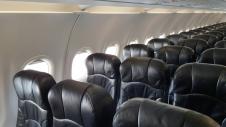Greece’s recent decision to "close" Mykonos after a spike in coronavirus cases on the island has caused severe disruptions to the country's tourist industry. The government is rushing to ease concerns about the sector and prevent uncertainty from spreading to other islands, with talk emerging that the restrictive measures imposed on Mykonos will be lifted Monday. However, in a matter of just a few days, the damage was done.
The first impact from the restrictive measures imposed on the most popular Greek destination can be seen from the drop in short-term property rentals seen after the government announcements:
- The occupancy rate of accommodation provided on short-term rental platforms in the period leading up to the end of July was very high, exceeding 95% - 97%, before the measures were announced in Mykonos.
- At the beginning of the week, however, that is, just 24 hours after the announcements of the measures, they occupancy rate had fallen to about 80%.
The situation regarding cancellations at hotels is less clear, but with his statements to Business Daily, the president of the Panhellenic Hoteliers Federation (HHF), Grigoris Tassios, expressed his concern about developments. He noted that "the myth of Covid Free islands collapsed, when on the most touristic island in the country, Mykonos, restrictive measures were imposed resulting in hotel cancellations, pushing the government restore the island back to normal as of Monday." He added that "the strategy for Covid free islands was not achieved, because the vaccination had to do with the island’s permanent residents, while, as it turned out, mechanisms were not in place to check tourists who arrived on the island. Greece should not have been divided into two and the result is what we are seeing now Mykonos".
Moreover, in a letter to the Minister of Tourism, Haris Theocharis, HHF emphasizes that the largest percentage of quarantine rooms in hotels are already used by tourists who stayed in accommodation rented on a short-term basis. Quarantine hotels, HHF notes, are not hospitals nor do their owners have any intention of turning them into such. The group is asking tourists who have chosen to stay in short-term rental accommodation and are positive on Covid-19 to be isolated in the space they have rented.
For his part, the Minister of Tourism told parliament that data from the hoteliers and businesses on the popular island do not support reports of mass cancellations being conducted due to the new strict restrictive measures. "There are no cancellations in Mykonos. Cancellations exist only in the minds of those who write about them. I spoke with the hoteliers and they assured me that there are no cancellations", stressed Theocharis. However, figures from short-term rental platforms for the peak tourism season remain encouraging, as "most tourists mostly choose detached houses that offer privacy so as to avoid coming in contact with a lot of people", as the president of E-Real Estates, Themistoklis Bakas, says. In particular, occupancy rates based on prebookings for the period 13 - 18 August even reach 100% on many island destinations.








